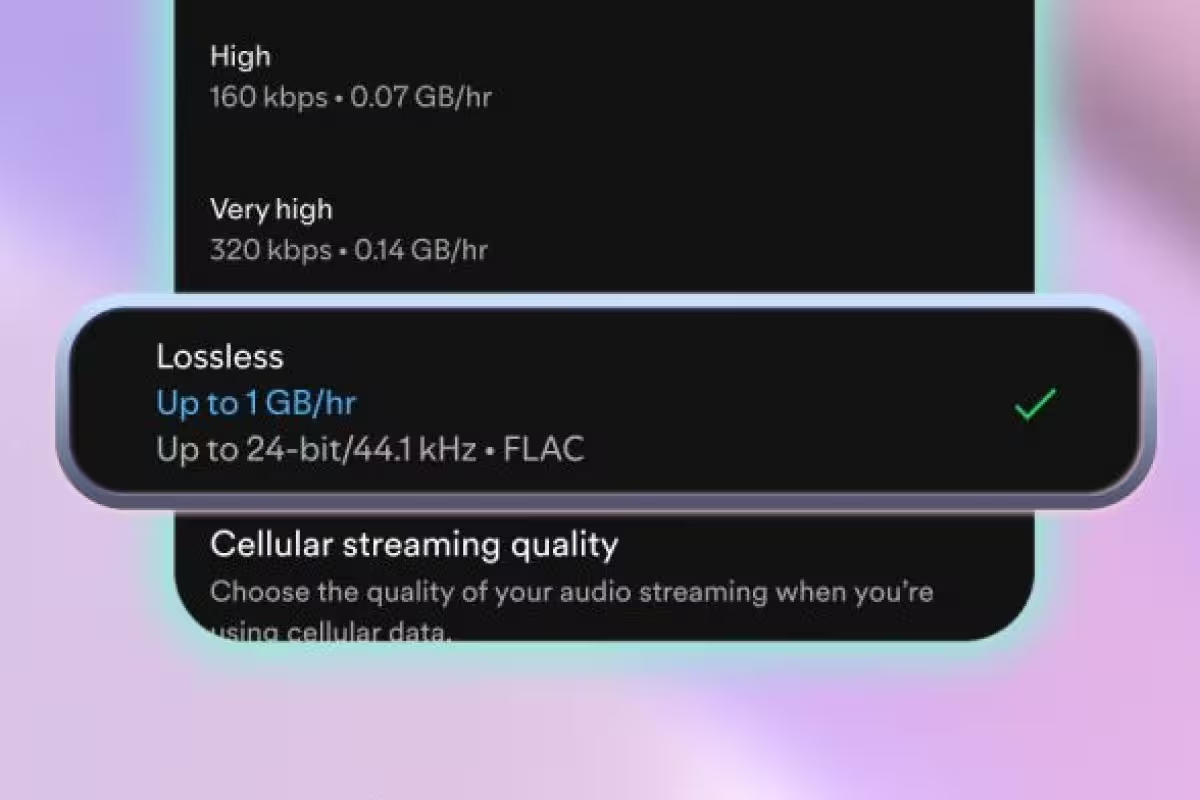4 Minutes
Spotify brings lossless audio to Premium subscribers
Spotify has begun rolling out Spotify HiFi, the long-awaited lossless audio option, to Premium subscribers in a selection of markets. The initial availability includes Australia, Austria, Czechia, Denmark, Germany, Japan, New Zealand, the Netherlands, Portugal, Sweden, the United Kingdom and the United States, with a phased expansion to more than 50 countries planned through October. Users who receive the update will find a new "Lossless" toggle in Media Quality settings that enables streaming in FLAC format.
Product features: what Spotify HiFi offers
Lossless FLAC streaming
Spotify HiFi delivers lossless files encoded as FLAC at up to 24-bit/44.1kHz. That’s a clear upgrade from Spotify’s previous top-quality 320kbps Ogg Vorbis streams and will provide noticeable improvements—especially for listeners with higher-end headphones, DACs, or home audio systems.
Same Premium price for now
Unlike early expectations that lossless audio would launch as a premium-priced tier, Spotify is including HiFi at the existing Premium price point for eligible users in the rollout markets. There’s no separate cost announced for the feature at this stage.

Comparison with rivals
Spotify’s 24-bit/44.1kHz offering is a meaningful step toward higher-fidelity streaming, but it trails competitors in some respects. Apple Music and Tidal both support higher sample rates—up to 24-bit/192kHz—while Apple also bundles spatial audio (object-based, Atmos-style formats) without extra charge. Currently, Spotify is not providing spatial audio or the ultra-high-resolution 192kHz streams that some audiophiles expect.
Advantages and limitations
Advantages
- Improved dynamic range and clarity over 320kbps streams for tracks mastered in high fidelity.
- No added subscription fees in countries receiving the rollout—an attractive move for users weighing switching costs.
- Simple activation via Media Quality settings makes the feature accessible for non-technical users.

Limitations
- Maximum 24-bit/44.1kHz may disappoint listeners seeking the highest sample rates (24-bit/192kHz).
- No spatial audio support at launch, which leaves Spotify behind services that already deliver immersive formats.
- Rollout timing is gradual; many Premium subscribers will wait weeks or a month to access the option.
Use cases: who benefits most
Audiophiles and owners of dedicated DACs, wired high-impedance headphones, or lossless-capable wireless systems will see the biggest benefit from Spotify HiFi. Casual listeners using inexpensive earbuds may notice less dramatic differences. Hi-res lossless streaming is particularly useful for critical listening, home audio setups, and professional workflows where fidelity matters.
Market relevance and strategic context
Spotify’s HiFi launch ends a multi-year wait after the feature was announced in 2021, paused amid competitive pressure when Apple expanded its lossless and spatial offerings. Rolling out HiFi at the standard Premium price signals an aggressive attempt to retain subscribers and compete on audio quality rather than tiered pricing alone. Yet the announcement also raises questions about Spotify’s roadmap for higher-resolution and spatial audio—features that could be reserved for future product tiers or add-ons.
While some observers may view this as "too little, too late," the availability of lossless FLAC on Spotify is nonetheless good news for listeners with the equipment to take advantage of it. As the rollout continues through October, the broader streaming market will watch whether Spotify expands sample rates, adds spatial audio, or keeps HiFi bundled at the existing price.
Source: gsmarena


Leave a Comment